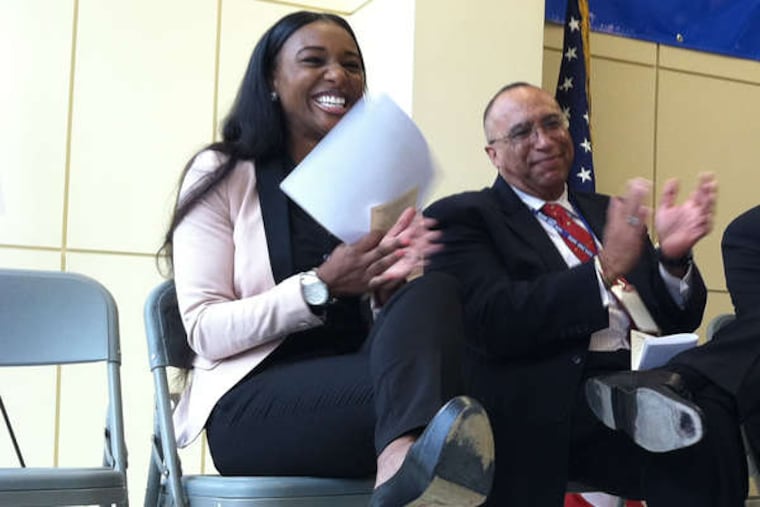From shackles to social worker: One Philly woman's story
What happens to those young children who are eyewitnesses to violence in their own home, whose stories are news for a while and then fade from view?

What happens to those young children who are eyewitnesses to violence in their own home, whose stories are news for a while and then fade from view?
One of those children is Markeytia Poindexter, now 24. On Thursday, she was one of the guests of honor at the dedication of the new Philadelphia Juvenile Justice Services Center - and the only one to get a standing ovation.
She was there to tell her story about how the staff at the old Youth Study Center along the Benjamin Franklin Parkway, where she was detained three or four times as she grew and got in trouble, helped her turn her life around.
In 1991, when she was 3, her mother, Lisa, shot a relative outside their North 13th Street rowhouse in Philadelphia and then locked herself and her daughter inside. She held the girl hostage for more than four hours in a standoff with Philadelphia police that resulted in an officer's being shot while trying to enter the house. Police went inside after Poindexter committed suicide by taking a prescription overdose.
Markeytia Poindexter was not hurt in the episode. But she essentially was left an orphan. Her father had started a life sentence in prison for murder a year earlier.
After the horror with her mother, Poindexter lived with a grandmother who physically abused her, she said. Next she went through a series of Department of Human Services (DHS) foster homes and group homes, running away from some.
Finally, her emotional troubles erupted in a fight at one of the group facilities, and she ended up in the juvenile justice system.
Poindexter got into fights at the Youth Study Center, too. But center staff - even those with whom she did not get along - saw promise in her. One of her social workers was Marq F. Temple, now director of the new center and then a graduate school student working for DHS.
"She was very smart, very articulate, she could write," Temple recalled Thursday. "I said, 'Wow, this is not your ordinary girl. She has issues, but we've got to work with those issues.' "
Poindexter's life-changing moment came in 2003, on her 15th birthday. Some of the staff who befriended her threw her a surprise party, complete with a cake with candles, food, and presents.
Poindexter was touched by center staffers showing "that they cared, people showing me affection and being compassionate toward me, just making me feel like a normal youth for once and not a criminal in shackles and cuffs."
She went back to high school and earned a diploma, got jobs beginning with one at a Taco Bell and Pizza Hut, and went on to college to become a social worker, which is what she has done since October for DHS.
Naturally, Poindexter prefers being in the detention center as a child-welfare worker than as a child delinquent.
"It's definitely better being there as a welfare worker because I was able to leave when I wanted to leave," she said and laughed.
It's unlikely that all of her clients will avoid spending time at the new detention center. Her goal with those who wind up there is simple:
"I hope to help the ones who do go there to have a journey of success like I did."